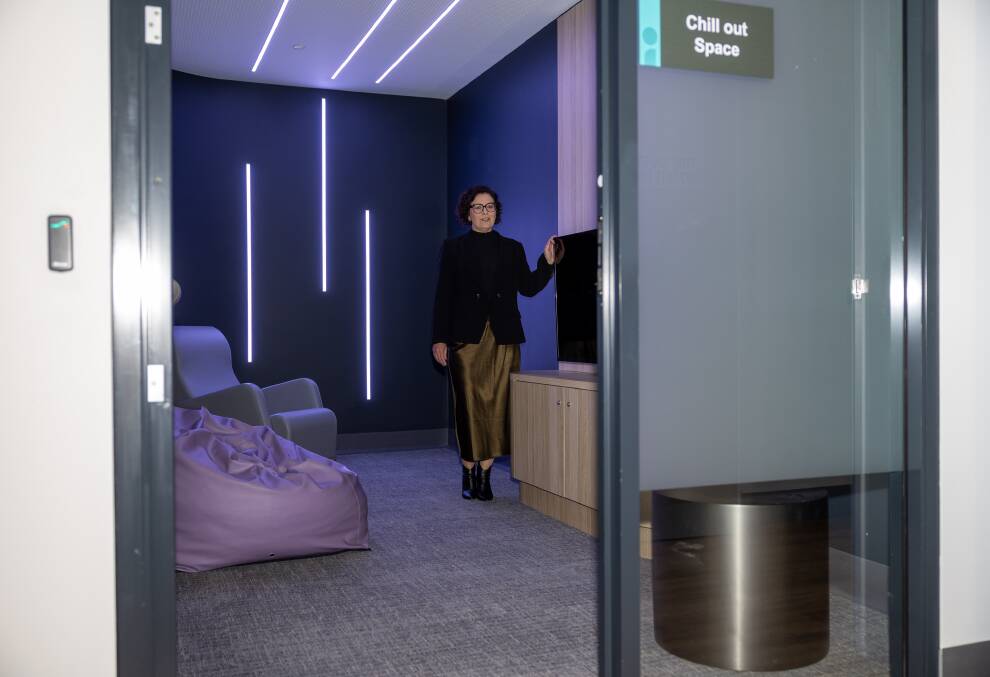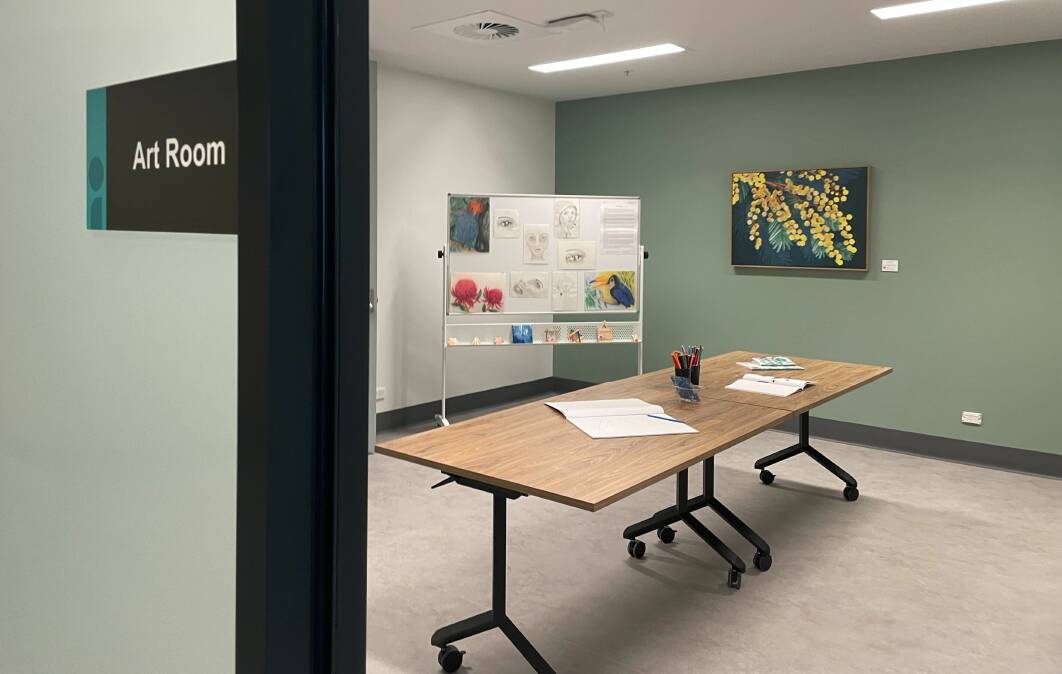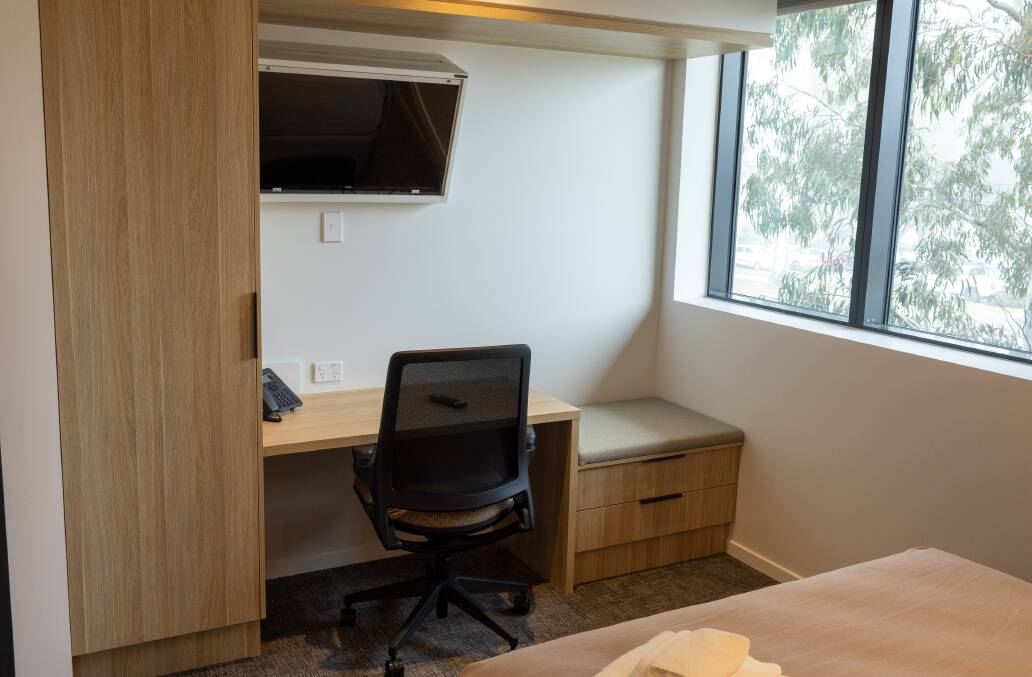A new Canberra private hospital officially opened on Thursday, although it has been operating since March.
Deakin Private Hospital has 52 beds for mental health patients, including 12 for young adults aged 16 and over.
The young adult service is yet to open.
Canberra Health Services launched a new adolescent unit at Centenary Women and Children's Hospital on Tuesday, which includes the ACT's first public inpatient beds for adolescents.
The hospital is operated by Aurora Healthcare, which says it is Australia's largest speciality mental health provider.
It was developed in partnership with Amplar Health, a branch of private insurance provider Medibank.

The hospital has an innovative healthcare model because patients can continue seeing staff and attend day programs once discharged, Amplar CEO Andrew Wilson said.
"About 50 per cent of people that have a psychiatric admission are readmitted within 12 months, which is a pretty staggering statistic," he said.
"Despite a lot of funding going into young people's mental health care, there's still major deficiencies, particularly that transition from inpatient care to home or community."
Concerns around mental health was a major reason for young people to take up private health insurance, Dr Wilson said.
"It's also one of the biggest drivers of young people taking up private health insurance, is actually their concern and their families concern around their access to mental health [care]," he said.

A patient's possible out-of-pocket costs depends on their level of insurance coverage, Deakin Private CEO Joanne Levin said.
Anyone with private health insurance, not just Medibank clients, are eligible to attend the service.
The hospital employs a general practitioner, a psychiatrist, psychologists, occupational therapists, exercise physiologist and other allied health professionals, Ms Levin said.
A care coordinator is a patient's primary point of contact, and will continue liaising with people after they've been discharged from hospital.
Adult patients have a daily routine, including a morning meeting, group therapy and consultations with the general practitioner and psychiatrist, general manager Anna Smith said. Visitors usually come by from 4pm.
"There is flexibility if the patient isn't up to doing some class activities," she said.
As a private facility, patients are assessed before being admitted to ensure their medical and psychological needs can be met by the service, Ms Levin said.
"We're treating people with high prevalence disorders, mood disorders, depression, anxiety ... people that might have emotional dysregulation disorders or personality disorders," she said.
"We're very mindful [in the ACT] of the veteran population and people that might have a history of trauma."
She said Deakin Private had strong relationships with the public hospitals in case of an emergency requiring a higher level of medical care.
The hospital is continuing to recruit psychiatrists before opening the young adult ward of the hospital, Ms Levin said.
"We don't want to put a timeline on that yet," she said.





The young adult unit is separate but not locked.
The hospital started to admit patients on March 23. While Ms Levin said the service had had a "slow start", Ms Smith read what she said was a letter from a 42-year-old female patient.
The mother with "a young family and busy career" was admitted for two weeks and has been accessing outpatient services for the last six weeks.
She had anxiety, low mood and forgetfulness.
"I was at a stage where I required substantial medication changes in an inpatient setting," the woman's letter said.
"I chose Deakin Private Hospital to help me as I am a Canberra-based and have few options locally. It was important to me to have family and friends nearby."
While in hospital, Ms Smith said the woman write she "felt safe, comfortable and nearly at home".
"All staff are extremely receptive to feedback and continual improvements to therapy programs and facilities," the patient said.
"From a medication perspective ... I was very much involved in all my decisions [and] I never felt rushed.
"I was there long enough to start embedding changes such as exercise which had fallen off for me over the years."
After discharge, the woman struggled but was able to contact her care coordinator. She is also an outpatient and attends a day program once a week, Ms Smith said.
"Upon reflection at roughly six weeks now, it has not been easy, but I'm a lot better off than I was," the letter read.
- Support is available for those who may be distressed. Phone Lifeline 13 11 14; Kids Helpline 1800 551 800, Open Arms 1800 011 046







